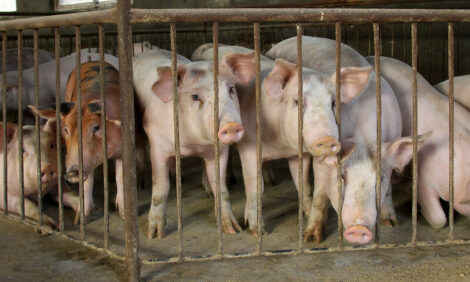UK may have to increase testing for non-existent parasite
UK - Trichinosis is a parasite that humans can contract from eating raw or undercooked pork - but not in the UK, where it is so rare it hasn't been seen for at least two decades.
|
Need a Product or service?
|
|
National
Pig
Association
THE VOICE OF THE UK PIG INDUSTRY
NPA is active on members' behalf in Brussels & White-hall, and with pro-cessors, supermarkets & caterers – fighting for the growth and pros-perity of the UK pig industry. |
Currently UK has a derogation not to test all pigs for trichinella, only those - such as cull sows - intended for export to other member states.
However this derogation is now at risk because the European Commission is intending to introduce new rules which would be helpful to producers and slaughterers on the continent - where trichinella is prevalent - but less helpful to the UK where about 25 percent of the breeding herd is outdoors.
As a result, and with the blessing of the Food Standards Agency, the UK will be pressing for the current UK derogation to stay in place. This country has not seen a positive test in pigs since the 1970s and has never seen a human case. A fox testing scheme has started to see if there is low level prevalence in wildlife but the 12,000 tests carried out so far have proved negative.
The new EC rules, if adopted, would offer three options, but none of them fits the UK's position.
The EC would want to see all pigs tested for trichinella unless they were from accredited herds (which would have to comply with complicated rules) or unless the UK were declared trichinella-free. But for trichinella-free status to apply, all pigs would have to be kept indoors all their lives.
The question being asked is, if 100 percent testing were introduced, who would pick up the tab? As it would be a statutory requirement the responsibility should be government's. But what would most likely happen is that the Meat Hygiene Service would carry out the testing and pass on the cost to the abattoir, which in turn would pass it to the producer.
Trichinella spiralis is a parasitic roundworm. Its life cycle begins when infectious cysts are eaten with the flesh of any meat eating animal. The cysts are digested and the liberated larvae invade the small intestine. The female hatches larvae that are carried by the blood and lymph to the muscles.
Source: National Pig Association - 18th November 2003

















